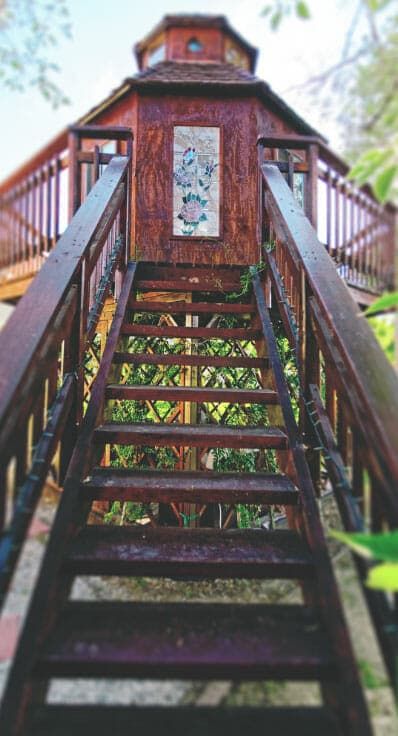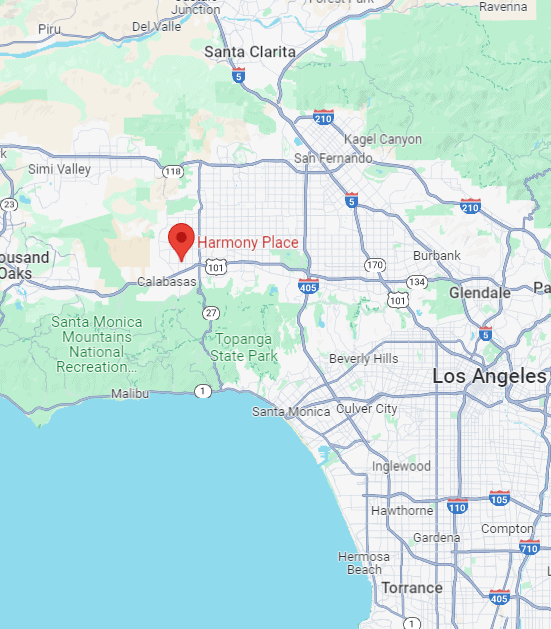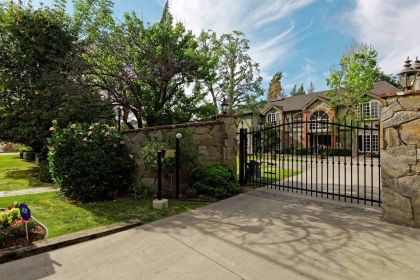Drug and Alcohol Rehab Programs for Construction Workers in California
Harmony Place operates detox and rehab centers that provide addiction treatment programs for construction workers in California. Drug and alcohol rehab treatment programs for skilled tradespeople in construction offer private, flexible, and evidence-based treatment, allowing you to focus on your recovery without interfering with your work schedule or personal responsibilities.
If you’re seeking drug and alcohol rehab for construction workers in California, contact us at Harmony Place. On this page, you’ll learn how to find the best drug rehab centers if you’re part of the construction labor force, addiction treatment programs, the options available for confidential addiction treatment programs, the benefits of attending rehabilitation towards industry professionals, and the cost of addiction treatment for construction industry workers in California.
Is Substance Use Disorder (SUD) Common Among Construction Workers and the Construction Industry?
Substance Use Disorder (SUD) is relatively prevalent among building and construction trades throughout the sector. Research indicates that if you’re working in this area, you experience higher instances of alcohol, prescription medication, and illegal drug use compared to several other occupations. This is due to the stressful nature of the job, the physically demanding tasks, and the availability of substances.
Blue-collar workers in construction often require extended working hours, unpredictable shifts, and physically taxing duties, which can elevate the likelihood of pain management challenges and self-treatment. Moreover, the workplace culture of construction crews and job site teams sometimes accepts alcohol or drug consumption, which can further exacerbate SUD, underscoring the importance of early intervention and construction industry addiction treatment in California and other regions.
Can Construction Staff Access Treatment Without Leaving Their Jobs?
As a construction worker, you can access addiction treatment recovery without stepping away from your job. Numerous rehab programs for construction crews in California and other states provide flexible outpatient options, evening sessions, or virtual counseling that accommodate hectic work schedules. These strategies enable you to receive proven care while keeping your job and fulfilling personal obligations.
Contact us at Harmony Place for a free addiction assessment to find the best treatment plan for you. If you require more intensive care, residential addiction treatment within our inpatient rehab centers may be the best option. If you need structured care without constant medical attention, outpatient rehab programs combine therapy, medical oversight, and skill-building, all without requiring a complete residential stay.
Furthermore, if you are combating addiction and mental health disorders simultaneously, you may need dual diagnosis rehab treatment. We can assist you in exploring these options and crafting a recovery plan that aligns treatment with your professional duties.
Are There Specialized Rehab Programs for the Construction Industry?
There is specialized rehab for construction professionals in California and other states. These addiction recovery services are crafted just for you if you work in the construction industry. These programs understand the distinct hurdles union construction workers encounter, such as the physically strenuous tasks, unpredictable hours, and high-pressure environments.
Holistic rehab treatment for trade union members in the construction industry offers flexible scheduling, specialized therapies, and support designed to facilitate your recovery without compromising your employment or duties. Beyond standard care, these addiction treatment programs for general contractors and laborers typically offer occupational counseling, relapse prevention techniques suited to construction settings, and peer support groups with fellow tradespeople.
By addressing both the physical and mental demands of your work, these specialized rehab programs not only boost your chances of long-term recovery but also help you safely reintegrate into your job. If you’re trying to locate alcohol and drug rehab for construction staff in California, contact us at Harmony Place.
Statistics on Substance Use Disorder in the Construction Industry
Jobs in construction and extraction fields have some of the highest rates of addiction and drug overdose fatalities among U.S. careers, with notably higher overdose death rates than many other sectors. The Center for Construction Research and Training shared that construction workers make up about 17% of workplace overdose deaths while only comprising around eight percent of the national workforce.
Synthetic opioids are a significant contributor, accounting for nearly 75% of overdose fatalities in this group, highlighting the pressing need for prescription drug rehabilitation and preventive measures in the construction industry. National survey data also indicate that construction workers have higher rates of illegal drug use and alcohol-related problems than those in most other fields.
Research published in peer-reviewed journals and public health sources indicates that construction workers are more likely to engage in risky health behaviors—such as binge drinking and smoking—and are at an increased risk of opioid misuse after work-related injuries or pain treatments. Injured workers have a greater likelihood of becoming long-term opioid users, heightening their risk of developing SUD. In California alone, approximately 2.7 million individuals encountered a substance use disorder last year, including numerous construction workers, yet only about 10% of those impacted received treatment—emphasizing a significant gap in access to care.
How Much Time Do Construction Workers Usually Spend in Rehab Programs?
The duration you spend in rehabilitation programs as a construction worker can differ depending on how severe your addiction is, the progress you make, and the treatment option you select. Typically, inpatient or residential addiction treatment programs last around 30, 60, or 90 days, whereas outpatient rehab programs might extend over several months with fewer treatment hours each week.
Ultimately, the rehab duration is customized to suit your needs and recovery objectives. Some of you might finish shorter programs if you respond swiftly to treatment. In contrast, others may find longer-term care or continuous aftercare support more beneficial to maintain sobriety and prevent relapse. If you need assistance determining the length of addiction treatment for construction industry workers in California that best meets your needs, contact us at Harmony Place.

We Will Check Your Insurance
When Is Residential Rehab a Better Fit Than an Outpatient Program for a Construction Worker?
Residential rehab programs might suit you better if your addiction has reached a stage where it seriously affects your everyday life, job performance, or relationships. Inpatient rehab centers offer a structured, immersive setting where you can concentrate fully on recovery without the distractions of the job site or the stress of tight construction deadlines.
If you’re dealing with severe substance abuse, co-occurring mental health disorders, or frequent relapses, residential addiction treatment provides around-the-clock medical supervision, counseling, and support that outpatient rehab programs often lack.
Moreover, residential rehab can be ideal if your construction work involves high-risk environments or physical tasks that could become dangerous under the influence of substances. Being away from work-related triggers, such as stress, long hours, or colleagues who use substances, allows for a safer and more consistent recovery. Intensive therapy, peer support, and a holistic approach in a residential setting also help you develop coping skills that you can bring back to the construction site after finishing treatment.
If you need help navigating drug and alcohol rehab for construction employees in Southern California, contact us at Harmony Place. We will start the process with our complimentary evaluation, which will show whether outpatient rehab programs or residential addiction treatment is the best route for you.
What Types of Roles Are Included in the Construction Workforce?
In the construction industry, various roles collaborate to transform building projects into reality. Whether you’re involved in hands-on tasks, specialized trades, or leadership roles, each position is vital in ensuring projects are completed safely, effectively, and to a high standard. Here are just a few examples of the numerous roles you might find in construction:
General Laborer
You manage a variety of fundamental tasks at construction sites, such as preparing materials, clearing debris, loading and unloading supplies, and assisting skilled workers. Your adaptability and eagerness to tackle diverse responsibilities are essential for ensuring that daily operations proceed smoothly.
Carpenter
Carpenters focus on constructing, installing, and fixing wooden structures and frameworks. The job involves interpreting blueprints, measuring and cutting materials, and assembling structures such as walls, door frames, and furniture. Your accuracy and skill are essential for crafting sturdy and precise building elements.
Electrician
As an electrician, you are tasked with setting up, maintaining, and fixing electrical systems on construction projects. You handle wiring, install lighting and power systems, and make sure all electrical work complies with safety standards and regulations. Your skills ensure that construction sites remain energized and secure.
Heavy Equipment Operator
You operate heavy machinery, such as bulldozers, excavators, cranes, and loaders, to shift earth, lift materials, and carry out other significant tasks. Heavy equipment operators are experts in managing these robust machines, which is crucial for the initial phases of construction and site preparation.
Site Supervisor (or Foreman)
As a site supervisor, often referred to as a foreman, you oversee the day-to-day activities on a construction site. Foremen and site supervisors coordinate the team, manage timelines, enforce safety regulations, and ensure the work remains on schedule and meets quality criteria. Your leadership is crucial in maintaining organization and efficiency in projects.

Substance Use Treatment for Construction Workers Near Los Angeles, California
If you’re part of the California construction workforce and are seeking a construction rehab program in Los Angeles, California, contact us at Harmony Place. We focus on identifying suitable substance use treatment programs for construction crews and licensed contractors in California. Call us at (855) 652-9048 for more information about addiction treatment programs tailored specifically for residential and commercial builders.
Harmony Place Locations in Southern California
Situated in the serene neighborhood of Woodland Hills, our upscale, luxury rehab centers offer premier detoxification programs, residential addiction treatment, and dual-diagnosis support. Our 24/7 rehab facilities offer inpatient accommodations designed for seclusion and comfort, providing confidential rehab for construction workers in California.
Harmony Place
23041 Hatteras St.
Woodland Hills, CA 91367
Harmony Place East
22913 Burbank Blvd.
Woodland Hills, CA 91367
Where Can Construction Workers Locate Addiction Rehab Programs Near Me?
Locating an appropriate addiction rehab program for builders, manual workers, and artisans can be daunting, but breaking the process down into simpler tasks can simplify it. Instead of spending hours browsing the web, you can always contact us at Harmony Place, and we’ll link you to a rehab program tailored to your challenging work timetable.
Here’s a straightforward, step-by-step guide to help you discover addiction rehab programs nearby:
Step 1: Determine Your Requirements
Determine the type of treatment you need—detox, residential, outpatient, or specialized programs for construction professionals, such as foremen and site supervisors. Consider aspects such as program duration, flexibility, and whether your insurance will cover the cost.
Step 2: Conduct an Online Search with Specific Keywords
Utilize Google or another search platform using precise phrases, such as:
- “Addiction rehab for construction workers near me”
- “Drug rehab near me”
- “Drug and alcohol treatment for construction personnel in [City/State]”
- “Residential rehab facility near [ZIP code]”
- “Flexible treatment programs for construction workers [City/State]”
Step 3: Review Program Information
Check private drug rehab websites to verify the services they provide, the insurance they accept, their location, and available treatment options. If you intend to continue working, look for programs that offer flexible schedules.
Step 4: Examine Reviews and Confirm Credibility
Read online reviews, Google ratings, and state licensing details. Look for accreditations from bodies like The Joint Commission or CARF International.
Step 5: Reach Out to Programs Directly
Contact affordable rehab facilities to inquire about availability, costs, and treatment plans. Be honest about your work schedule to determine if they can accommodate it.
Step 6: Utilize Local Resources and Hotlines
- SAMHSA Treatment Locator: https://findtreatment.gov
- Local health departments or union construction workers support programs
- Employee Assistance Programs (EAP) are available through your workplace
Step 7: Arrange a Free Assessment
Many rehabilitation programs, including Harmony Place, offer complimentary consultations to help you find the best match for your specific needs. This will provide you with insights into costs, treatment options, and next steps.
Which Types of Treatment Programs Are Available for Those in the Construction Field?
If you’re employed in the construction industry, you might encounter physically challenging tasks, tight deadlines, extended or erratic work hours, and job-related stress, all of which can heighten the risk of addiction. To aid in recovery, there are numerous addiction treatment programs tailored to meet the diverse needs and time constraints of heavy equipment operators and other construction industry professionals.
Here are different program levels of drug and alcohol rehab for construction workers in California, although this is not a comprehensive list of all resources available:
Inpatient or Residential Programs
Inpatient rehab centers offer residential treatment for addiction with round-the-clock assistance in a managed setting, enabling you to disconnect from job responsibilities and everyday stresses fully. If you’re part of the construction labor force, these programs provide medical oversight, personal and group therapy sessions, and a recovery-centered community.
This kind of program is particularly beneficial if you’re dealing with severe substance abuse or dual mental health issues, as it offers concentrated care while reducing external distractions during the initial phases of recovery.
Partial Hospitalization Programs (PHPs)
Partial Hospitalization Programs (PHPs) offer structured daytime treatment without the requirement for overnight accommodations. You participate in therapy and counseling sessions for several hours each day, several days a week, and then head back home or to a sober living environment in the evenings.
Our PHP is an excellent choice if you’re a construction worker seeking intensive care and oversight while maintaining a stable home life or if you’re looking for a gradual transition from residential treatment.
Intensive Outpatient Programs (IOPs)
Intensive Outpatient Programs (IOPs) enable you to keep working part-time while participating in therapy several times weekly. These addiction treatment programs offer counseling, education on preventing relapse, dual diagnosis rehab treatment, and peer support groups specifically designed for skilled tradespeople in construction.
Our IOP is perfect if you require adaptable treatment options that allow you to practice recovery skills in real-life situations while preserving your professional and work relationships.
Virtual Substance Use Disorder Rehab
Virtual substance use disorder rehab provides remote therapy, counseling, and recovery education through secure online channels. This solution is ideal for construction workers like you, who may have irregular schedules, lengthy commutes, or restricted access to nearby addiction treatment centers.
With online rehab, you can access expert guidance and support from the comfort of your own home, allowing you to integrate care into your work schedule without compromising on privacy or treatment quality.
Sober Living
Sober living homes offer you a secure, drug-free space as you engage in outpatient rehab programs or return to work post-rehab. These residences support you, particularly if you work in construction, in establishing positive habits, embracing responsibility, and forming supportive connections in recovery, all while gradually re-entering everyday life and the job market.
What Are the Different Addiction Programs Near Me for Construction Workers?
If you’re employed in the construction industry and seeking assistance with substance abuse issues, understanding your treatment choices can simplify the decision-making process. Here are some examples of various addiction treatment programs that could be accessible in your area.
This list isn’t exhaustive, but it can serve as a starting point for locating a program that aligns with your requirements and way of life:
Medical Detox
Medical detox assists construction workers in safely eliminating drugs or alcohol from their bodies under expert supervision. This process is typically the initial step in recovery, helping to manage withdrawal symptoms in a safe environment.
Detox programs are usually brief but crucial for readying your body and mind for subsequent phases of treatment.
Medication-Assisted Treatment (MAT)
Medication-Assisted Treatment (MAT) integrates FDA-approved drugs with therapy and behavioral counseling. It’s often utilized for treating opioid or alcohol dependency. For construction workers managing hectic timetables, MAT can provide stability and reduce cravings, allowing you to focus on both your recovery and job duties.
Faith-Based / Religious Treatment
Faith-oriented rehabilitation programs incorporate spiritual activities, prayer, and religious instruction along with conventional therapy. These addiction treatment programs might be suitable if your spirituality or faith is a significant aspect of your life and can offer additional support during your recovery.
Rehab for Men
Specific programs are created just for you, providing a space where you and other male construction workers can discuss common challenges without fear of judgment. This setting frequently fosters friendship, responsibility, and trust, which are particularly crucial in an industry dominated by men.
Rehab for Women
Rehab programs designed exclusively for women concentrate on the distinct physical, emotional, and social challenges you encounter in addiction and recovery. As a female construction worker, these programs provide a secure and nurturing space for you to tackle obstacles without external pressures or distractions.
Non-Religious Treatment
Non-religious rehabilitation facilities concentrate entirely on scientific therapy and recovery strategies, excluding any spiritual or religious elements. These construction labor force non-religious programs are ideal if you prefer a non-religious approach and wish to focus solely on medical treatment methods.
LGBTQA+ Treatment
LGBTQA+ initiatives provide a nurturing and empathetic environment for LGBTQ+ construction workers. You often tackle specific pressures, such as discrimination or identity-related issues, that can lead to substance use when working alongside skilled tradespeople in construction. These addiction treatment programs will help you attain sobriety without stigma.
Dual Diagnosis Treatment
Dual diagnosis rehab treatment programs address both Substance Use Disorder (SUD) issues and mental health problems simultaneously. This method can be particularly beneficial for you if you’re a construction worker struggling with depression, anxiety, or trauma in addition to addiction.

Do Drug and Alcohol Treatment Facilities Around LA Serve Individuals in Construction Roles?
Numerous addiction treatment facilities offer a construction rehab program in Los Angeles, California. These addiction treatment programs recognize the specific hurdles you face—such as physically intense labor, unpredictable hours, and high-pressure conditions—and provide tailored care to suit your requirements. These facilities may offer adaptable treatment options, including outpatient rehab programs, to help you balance recovery with work responsibilities.
Moreover, many centers for drug and alcohol rehab for construction workers in California provide customized support services like career counseling, strategies to prevent relapse, and stress management techniques tailored for the construction sector. By addressing both the physical and psychological elements of addiction, these programs aim to help you restore your health and career while achieving lasting sobriety. If you have questions about rehab programs for construction crews in California, contact us at Harmony Place.
How Much Does Addiction Rehab Cost for Construction Workers in California?
The cost of addiction treatment for construction workers in California can vary greatly depending on the type and length of treatment selected. Outpatient rehab programs may cost between $3,000 and $10,000 for 30 days, and inpatient rehab centers or residential addiction treatment range from $15,000 to $60,000 per month.
Factors such as location, amenities, and specialized services tailored to construction workers can impact the overall costs. Many facilities accept private insurance, which can substantially reduce your out-of-pocket expenses. Contact us at Harmony Place to receive personalized cost estimates.
Does Private Insurance Cover Rehab in California for Construction Workers?
Private insurance might pay for rehab for construction professionals in California, but the level of coverage depends on your plan and insurance provider. Many private insurance plans offer behavioral health benefits that you can use for services like medical detox, inpatient rehab, outpatient treatment, and therapy for substance abuse issues.
To learn what is covered, contact us at Harmony Place. Our skilled team provides free insurance verification to help you understand your benefits, including any copays or deductibles, as well as the treatment options available under your policy. This can make planning for rehab less daunting and more cost-effective if you’re a construction worker in California.
Which Insurance Providers Cover Rehab for Those in the Construction Industry?
If you’re employed in construction—be it on-site, in project coordination, or other associated positions—you might qualify for the same health insurance options available to workers in different sectors. Federal guidelines often require that insurance plans include coverage for addiction treatment. Some major insurers that typically provide this coverage are Aetna, Blue Cross Blue Shield, Cigna, UnitedHealthcare, and Humana.
These insurance plans might cover services such as medical detoxification, inpatient or outpatient rehabilitation, counseling, and medication-assisted treatment. The details within your policy will determine your coverage. If you need assistance, contact us at Harmony Place.
How Do Rehab Programs Ensure Confidentiality for Construction Workers?
Your privacy as a construction worker in recovery is protected by rigorous confidentiality regulations like HIPAA, which safeguard your personal health information. Rehab programs for construction crews in California only share details with authorized individuals. These centers are adept at maintaining secure records, ensuring that your employer or colleagues aren’t informed without your explicit consent.
Confidential rehab for construction workers in California also provides private therapy sessions and discreet admissions to protect your identity. Any communication with external parties is managed carefully, and necessary workplace adjustments can be made without revealing the reason for your absence. This allows you to focus on your recovery without fearing stigma or work-related repercussions. For more information about addiction treatment programs for construction workers in California, contact us at Harmony Place.

What Factors Lead Construction Workers to Seek Admission into Rehab?
Working in construction is tough on the body, mentally taxing, and often involves erratic work hours—factors that may lead you to substance use or addiction. Although your circumstances will be different from everyone else’s, several typical reasons might drive you to consider rehab.
Here are a few examples, though this is not an exhaustive list, of what might influence your decision to seek treatment:
Chronic Pain from Physical Labor
As a construction worker, you often face repetitive movements, heavy lifting, and physically demanding tasks that may lead to ongoing pain or injuries. To manage, you might resort to prescription painkillers or other substances for relief. This can sometimes result in dependence over time, potentially requiring professional assistance.
High-Stress Work Environment
Facing tight deadlines, hazardous working conditions, and the pressure to meet expectations can lead to a high-stress environment for you. This ongoing stress might drive you to turn to drugs or alcohol to relax or dull emotional tension, potentially leading to addiction if not addressed.
Workplace Culture That Normalizes Substance Use
In some construction environments, you may find that using substances is a common method for socializing or managing work-related stress. When alcohol or drug consumption becomes routine, it can make engaging in hazardous behaviors easier, raising the chances of substance abuse and potentially leading to the necessity for rehabilitation.
Irregular Schedules and Long Hours
In your line of work, you often face lengthy shifts, overnight duties, or irregular hours. Such disruptions to your routine can lead to exhaustion, stress, and inadequate sleep—factors that might make you more prone to using substances to stay awake or unwind, potentially resulting in dependency.
Limited Access to Mental Health Support
As a construction worker, you might find it challenging to access mental health resources easily, or you may feel stigmatized when reaching out for help. Without addressing underlying issues like anxiety, depression, or trauma, you could be tempted to self-medicate with drugs or alcohol. This can lead to addiction, eventually prompting you to seek rehabilitation.
- Inpatient Rehab Los Angeles
- Intensive Outpatient Program Los Angeles
- Evening Intensive Outpatient Program
- Medication Assisted Treatment Los Angeles
- Outpatient Rehab Program Los Angeles
- Los Angeles Partial Hospitalization Program
- Medically Assisted Detox LA
- Sober Living Homes and Halfway Houses
- Clinical Care Los Angeles
- Family Therapy Rehab Program
- Couples Rehab Los Angeles
- Men’s Addiction Rehab California
- Women’s Rehab Center SoCal
- Addiction Treatment for Veterans
- Short-Term Addiction Rehab
- Long-Term Addiction Rehab
- Private Luxury Rehab Los Angeles
- Faith-Based Rehab Programs
- Non-Faith-Based Rehab
- Rehab for Professionals LA
- Rehab Aftercare Alumni Programs
Statistics on Drug and Alcohol Use Within the Construction Field in California
- Construction and extraction jobs experience some of the highest rates of drug overdose deaths among U.S. professions, exhibiting higher overdose mortality compared to many other fields.
- Construction workers represent a larger portion of workplace overdose fatalities. The Center for Construction Research and Training highlights that construction workers comprise about 17% of overdose fatalities among employed individuals, yet they constitute only eight percent of the labor force. Synthetic opioids played a role in approximately 75% of overdose fatalities among construction workers, illustrating that prescription drug rehab is vital in this sector.
- National survey data indicate elevated levels of illegal drug use and alcohol-related issues within the construction sector compared to numerous other industries.
- Research from peer-reviewed and public-health studies indicates that construction workers exhibit a greater incidence of hazardous health behaviors (such as binge drinking and tobacco use) and face an increased risk of opioid misuse after experiencing work-related injuries or pain treatment. Injured construction workers are more prone to becoming long-term opioid users.
- Around 2.7 million people in California faced a substance use disorder last year, including construction workers in California, but merely 10% obtained treatment.


















